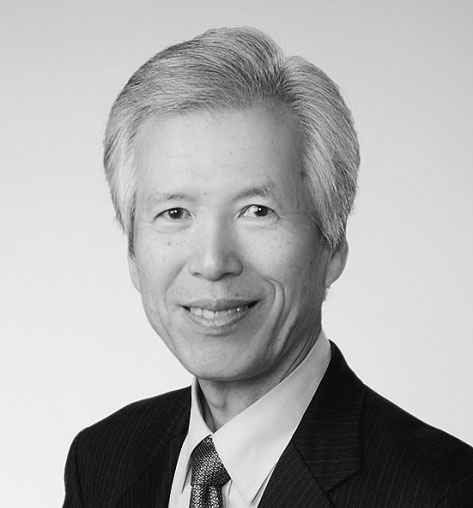| Susumu Yoshida |

After Dr. Yoshida was awarded a doctorate for his research into transmission line codes and recording channel codes that were intended for use in high-speed digital transmission and high-density magnetic storage, respectively, as well as his pioneering research into connecting computers using optical fibers, he embarked on research into antennas, propagation and systems for mobile radio communications since 1976. When such mobile communications were still in their infancy, he became the foremost figure in this field, and has been making significant contributions to the development of mobile communication technologies ever since.
One of his most noteworthy achievements is that he proposed an innovative technical solution to overcome the major issue of burst errors caused by frequency selective multipath fading, a critical problem in the implementation of digital mobile communications. He studied the mechanism by which these errors arise, found novel anti-multipath modulation techniques, which, contrary to expectation, reduce the error rate in multipath propagation channels with certain delay differences. In addition, he proposed a completely unique reception method that combines spatial signal processing, which uses a selector antenna, and temporal signal processing, which uses an adaptive equalizer. This finally led to the development of a trellis-coded co-channel interference canceler, which suggested the possibility of space-division multiplexing transmission. He was one of the first to recognize the promising future of a distributed control wireless network. For instance, he analyzed its basic characteristics, such as the frequency usage efficiency of a multi-hop wireless network, and later conducted field experimental research of a multi-user MIMO with pre-coding, assuming distributed antennas.
In this way, Dr. Yoshida has made significant contributions to the development of wireless communication technology both by guiding the direction of research from the 1980s, and by conducting empirical research. His contributions to education are also remarkable. He was an enthusiastic promoter of international scientific exchange in this field, and of educating young researchers, which led to many top-notch researchers working in enterprises and universities.
For these achievements, Dr. Yoshida received the Young Researcher's Award, the Best Paper Award, and the Achievement Award from the IEICE; the Telecom System Technology Award from the Telecommunications Advancement Foundation, the Info-Communications Promotion Month Commendation by the Director of the Kinki Bureau of Telecommunications, Ministry of Internal Affairs and Communications (MIC), the Ericsson Telecommunications Award, the Radio Day Ministerial Commendation, MIC, and the Okawa Prize. He was named a fellow of the IEICE. His many contributions to the IEICE are of the highest caliber. Within the IEICE, he served as President, Vice President, President of the Communications Society, Director of Journal and Transactions, and Chair of the Kansai Section. He has made significant contributions in the public sphere as well, assuming such important posts as a council member of Science Council of Japan, a member of the Information and Communications Council, MIC, and a member of the New Generation Network Promotion Committee.
As mentioned above, Dr. Yoshida has made outstanding contributions to industry and society in general and to the development of the electronics, information and communication engineering through his research and educational activities in university and academic institutes in Japan and abroad including the IEICE, and through scientific exchanges with overseas universities and research institutes, and thus recommend Dr. Yoshida as a worthy candidate for the IEICE's Distinguished Achievement and Contributions Award.